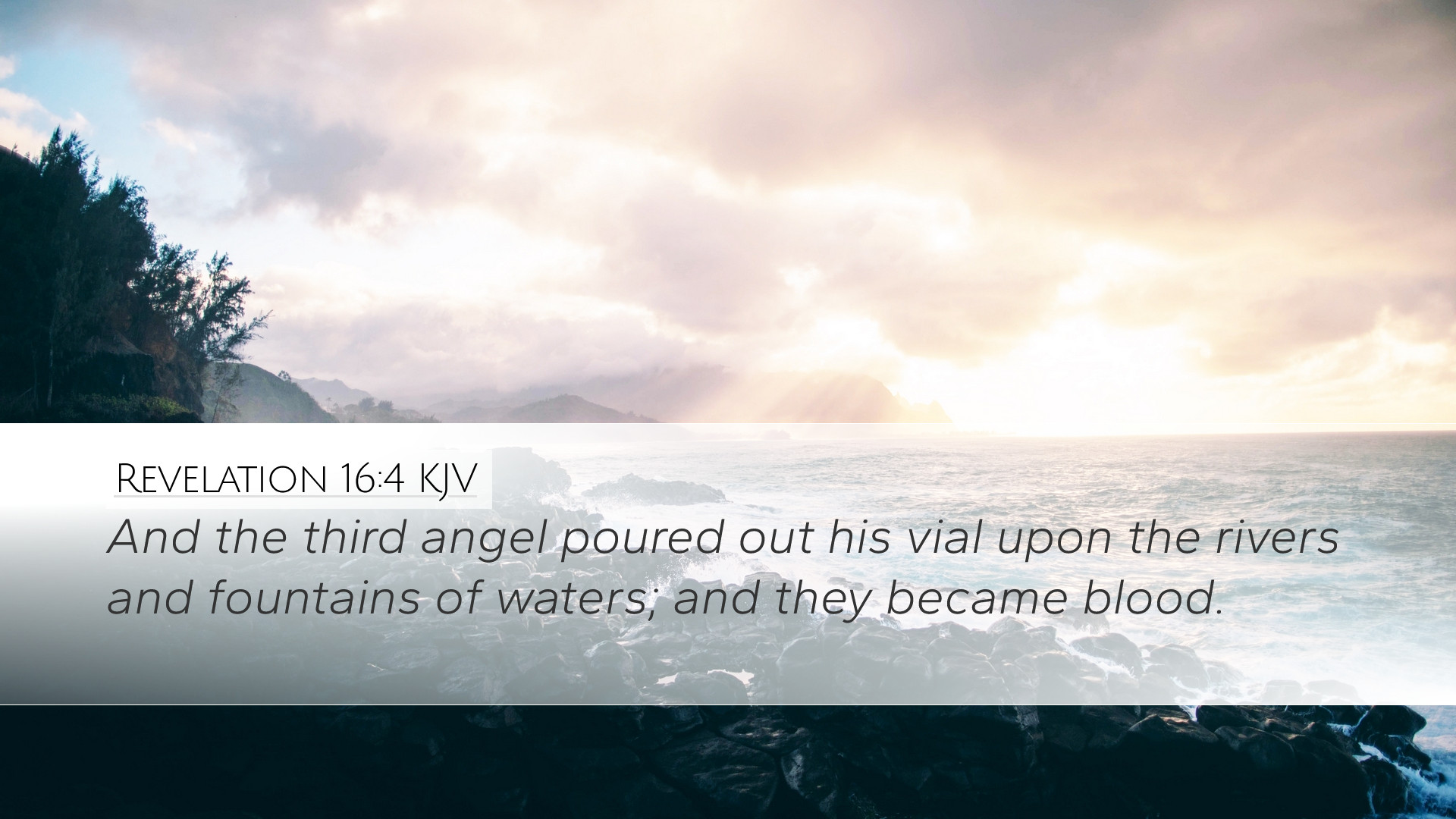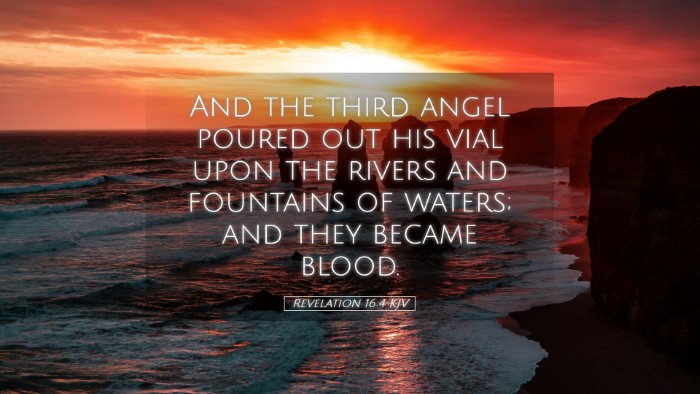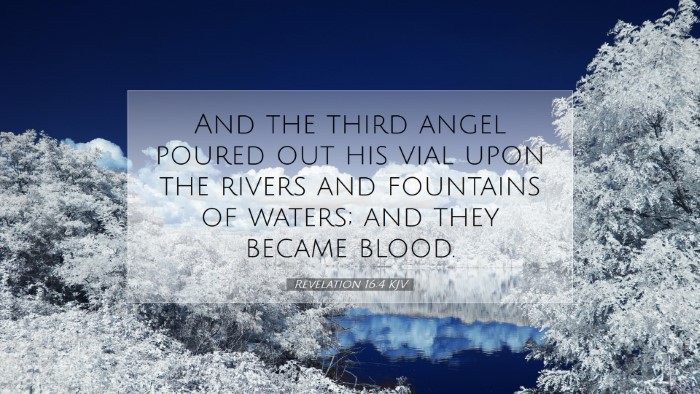Commentary on Revelation 16:4
Revelation 16:4 reads: "And the third angel poured out his vial upon the rivers and fountains of waters; and they became blood." This verse is part of the series of judgments known as the Seven Bowls, which are significant in the eschatological events described in the Book of Revelation.
Contextual Overview
In the context of Revelation, these plagues serve as divine judgments upon the earth, emphasizing God's sovereignty over creation and the consequences of humanity's rebellion against Him. The plagues reveal both God's justice and the ultimate fate of those who oppose His will.
Theological Themes
- Divine Judgment: This verse illustrates a critical aspect of biblical theology: the reality of divine judgment. Matthew Henry observes that the transformation of healthy, life-giving waters into blood symbolizes the severity of God’s wrath on those who have turned away from Him.
- Symbolism of Blood: Blood in Scripture often signifies life (Leviticus 17:11). The transformation of water, which sustains life, into blood is not only a judgment but a commentary on the rejection of the true source of life. Adam Clarke points out that this illustrates the horrors of rejecting divine provision and the severe consequences that follow such disobedience.
- Fulfillment of Prophecy: The pouring out of the bowl signifies the fulfillment of prophetic warnings throughout Scripture. Albert Barnes highlights that such judgments were foreshadowed in the plagues of Egypt (Exodus 7:14-24), emphasizing God’s ongoing response to sin.
Insights from Public Domain Commentaries
Matthew Henry's Concise Commentary
Henry notes that the third vial judgment highlights the grievous consequences of human sin against God. He suggests that this judgment speaks to the spiritual custom of those who worship the beast and partake of the world's iniquities. Where once the waters were a source of sustenance, they are now a source of suffering—symbolizing the spiritual barrenness of a world turned against God.
Albert Barnes' Notes on the Bible
Barnes reflects on the broader implications of this judgment by discussing the moral order of the universe. In his view, the changing of water to blood serves to underline God’s righteousness in His judgments, demonstrating that the creatures of God face consequences proportional to their actions. He encourages readers to understand that these illustrations serve as a warning to humanity to turn back to God before it is too late.
Adam Clarke's Commentary
Clarke emphasizes the dual nature of these judgments—they are both just and profound displays of God’s sovereignty. His commentary suggests that the transformation of natural elements serves not only as a punishment but also as a call to repentance. He reminds readers that such signs are to provoke thought about humanity’s spiritual condition and their relationship with the Creator.
Practical Applications for Pastors and Theologians
- Understanding Judgment: Pastors can use this verse to educate congregants on the seriousness of sin and the reality of God’s judgment. In a culture that often downplays accountability, emphasizing God’s righteous standards can lead to genuine repentance and spiritual renewal.
- Call to Repentance: It's imperative for leaders to remind congregations that divine judgment serves as a motivation for repentance. This passage can be a powerful tool for evangelism, highlighting the urgent need for people to embrace the life-giving grace of Christ.
- The Sovereignty of God: Both students and scholars should reflect on God's sovereignty as depicted in Revelation. This theme underscores the assurance that God is in control of history and will bring all things to fulfillment according to His plan.
Conclusion
In summary, Revelation 16:4 is a pivotal verse that encapsulates profound theological truths about divine judgment, the consequences of sin, and the sovereignty of God. As believers, understanding and applying these insights can lead to a richer spiritual life and a deeper appreciation of God’s grace amid judgment. The insights from Matthew Henry, Albert Barnes, and Adam Clarke serve to deepen our comprehension of these weighty themes, inviting further reflection and spiritual growth.


